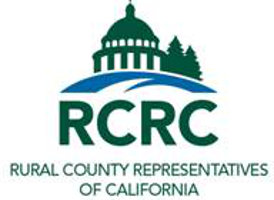Sacramento, CA…Rural County Representatives of California (RCRC) Officers, Members, and staff met with key federal policymakers and staff in Washington, D.C. this week to highlight current issues impacting California’s rural counties. The federal priorities for rural California include Federal Payments in Lieu of Taxes (PILT), wildfire suppression funding, reauthorization of the Secure Rural Schools and Community Self-Determination Act (SRS), and transportation infrastructure.
“RCRC’s annual trip to Washington, D.C. provides our organization and California’s rural counties the opportunity to advocate with a collective voice before our Nation’s policymakers on federal issues critical to our communities,” said Bob Williams, RCRC Chair and Tehama County Supervisor. “It’s crucial that our federal leaders understand the impacts national policies and programs have upon small, rural counties.”
Federal Payments in Lieu of Taxes
The Federal Payments in Lieu of Taxes (PILT) program provides payments to counties to offset losses in property tax revenues due to the presence of tax-exempt land owned by a variety of federal agencies. Congress has been reviewing Federal PILT reauthorizations annually for the past several years, leaving county payments uncertain.
RCRC urges Congress to support full funding ($480 million) of Federal PILT for FY 2017, and continues to advocate for a long-term reauthorization going forward.
Wildfire Suppression Funding
In his FY2017 budget request, President Obama once again included language requesting Congress pass the Wildfire Disaster Funding Act (WDFA). The WDFA would allow the Department of the Interior and the U.S. Forest Service to access an amount equal to 30 percent of the 10-year average of suppression costs through the national disaster funding cap, a budget mechanism that is not reliant on annual Congressional appropriations. The disaster cap adjustment for wildfire suppression would give the agencies the amount needed to cover the costs of the 1-2 percent of fires that are considered catastrophic, and cost the most money. Creating the cap adjustment would give the agencies more budget certainty to plan for better public lands management.
RCRC believes strongly that the WDFA is the best option to reform the process for funding fire suppression activities, and end “fire-borrowing,” the raiding of forest management accounts to pay for rising wildfire suppression costs. The WDFA provides federal firefighting agencies the flexibility they need to respond to extreme wildfires by giving them the authority to access funds in a wildfire disaster fund within the disaster budget cap.
Secure Rural Schools and Community Self-Determination Act
The Secure Rural Schools and Community Self-Determination Act (SRS) provides funding for rural counties and school districts to help replace revenue lost from dwindling forest receipts. Congress has not reauthorized SRS, and there are no scheduled SRS payments for FY 2016 or FY 2017.
RCRC supports the immediate reauthorization of SRS, and urges Congress to provide a long-term, stable source of funding going forward. Additionally, RCRC asks policymakers not to become bogged down in the process of negotiating forestry reform before moving an SRS reauthorization. The reauthorization of SRS is so critical to the day-to-day operation and solvency of many rural counties that it must be passed – with or without forestry reform.
Transportation Infrastructure
An efficient transportation network is vital for economic growth in rural California. Federal transportation infrastructure funding has been in a steady decline over the years, and it has impacted the ability of rural counties to meet the increased demand on transportation networks that connect people to the goods and services they need. Both Congress and the new Administration have stated that they would like to pass an infrastructure package that would boost investment in our nation’s infrastructure investment.
RCRC supports efforts to provide federal funding to building and maintaining roads and bridges and other surface transportation infrastructure vital to rural communities.



